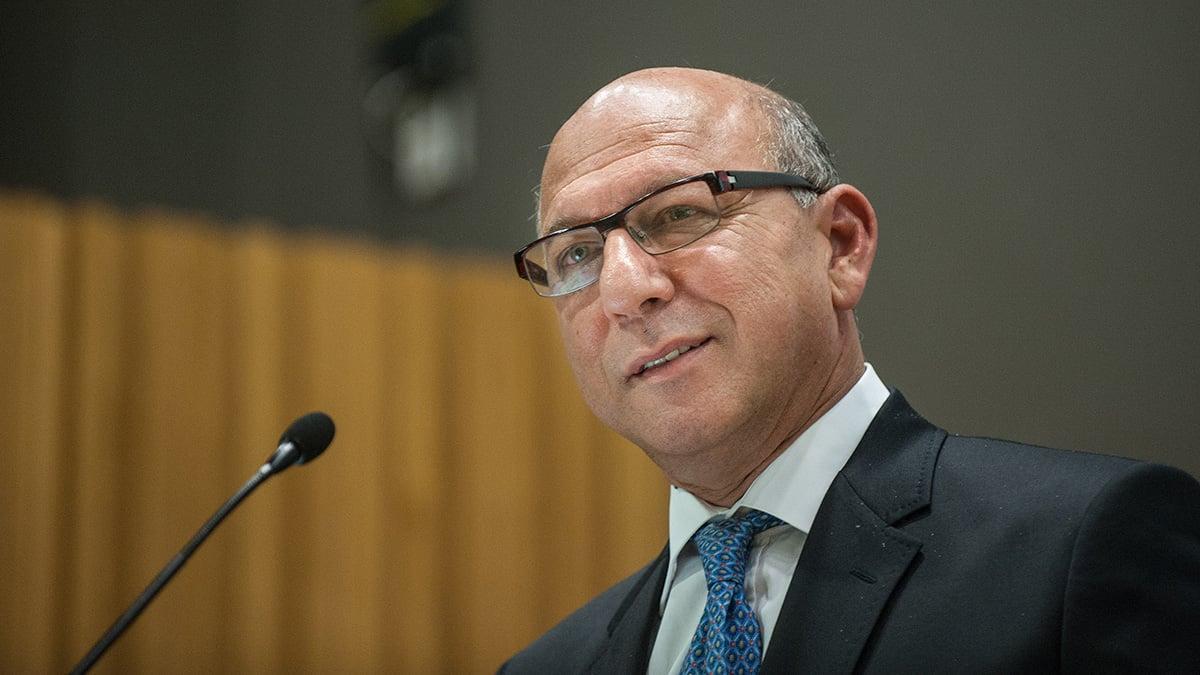Africa-Press – South-Africa. Foreign investors have taken R1 trillion out of South Africa in the past decade, as the country’s assets produce poor returns compared to global peers due to an uncertain regulatory environment.
This is feedback from Old Mutual chair and former finance minister Trevor Manuel, who wrote in the company’s annual report that South Africa is struggling to compete for investment globally.
Manuel said that the effects of state capture continue to be felt across South Africa, and while there has been an effort to restore institutions and rebuild the economy, more work is desperately needed.
“Against this backdrop, it is crucial that regulators adopt a pragmatic approach, striking a balance between fiscal requirements and providing clear regulations and long-term regulatory certainty,” he said.
Manuel noted that over the past decade, foreign investors have disinvested over R1 trillion from South African equities and bonds.
The main driver has been regulatory uncertainty and “execution status”, with the government’s reform programme taking far too long to implement.
“This money is being redirected to competing markets that appear to have a more sound governance and regulatory foundation.”
“This is a stark reminder that Africa, particularly South Africa, has to compete to attract and retain investment,” Manuel said.
He warned that the country’s national election on 29 May will only add to South Africa’s uncertainty and make investors more hesitant to invest locally.
This year’s election is set to be the most fiercely contested in South African history, with the ANC poised to lose its majority and a coalition government likely to govern the country.
Old Mutual said it is willing to collaborate with regulatory authorities and the government to create an environment conducive to business growth and investment.
South Africa being left behind
Manuel’s comments echo those of Standard Bank CEO Sim Tshabalala, who said South Africa is losing ground to its African peers as many of their economies are more attractive to investors.
Tshabala said the country has incredible competitive advantages but has failed to capitalise on them. He called for the state to improve its efficiency to capitalise on them.
“Please improve the quality of our institutions. In the case of South Africa, we use the lovely phrase ‘Please capacitate the public sector’.”
“Some parts of the public sector are excellent, such as the National Treasury and the Reserve Bank. Replicate what is happening in those across the board,” Tshabalala said.
“Please capacitate the state,” he repeated. “Please professionalise it. Please continue to make doing business easier.”
Tshabalala explained that South Africa is involved in a global competition with its African counterparts and other emerging markets for scarce capital to drive economic development.
“The world competes for capital. We compete for the money we need to finance our nation’s budget deficit and compete globally for the money to finance infrastructure investment, fund Eskom and Transnet, and finance corporate projects.”
The biggest factor in attracting capital is the country’s risk premium, which dictates the returns an investor should expect when taking on the risk of investing in a given country.
This directly impacts a country’s ability to raise capital and the companies that operate in it. As this premium increases, which it has in South Africa, it makes it more difficult to attract investments in local businesses and finance the government’s deficit.
“We are competing on the continent and with emerging markets for this capital. So if they have decreased the risk of investing in their country and generated greater returns, the money will then rather go to those places than South Africa,” Tshabalala said.
The key factor is the rate at which the economy is growing. South Africa is expected to grow at less than 1% in 2023, while other African countries will average greater than 3% growth.
“What does this mean? It means that we are losing our national competitive advantage. We need to grow faster and get people healthier and wealthier,” Tshabalala said.
A richer population will also generate more capital to invest locally and drive further economic growth.
“We are growing at 0.8%. Other countries are growing much faster. Where do you think that money is going to go? It is going to go to other countries and not South Africa.”
For More News And Analysis About South-Africa Follow Africa-Press






